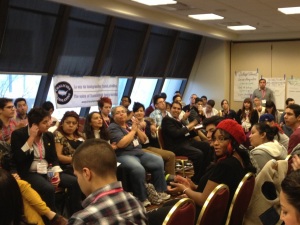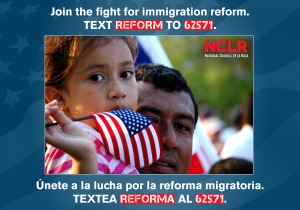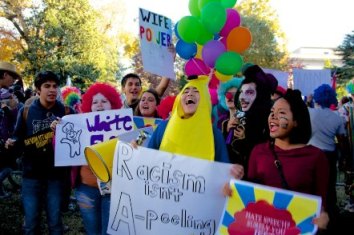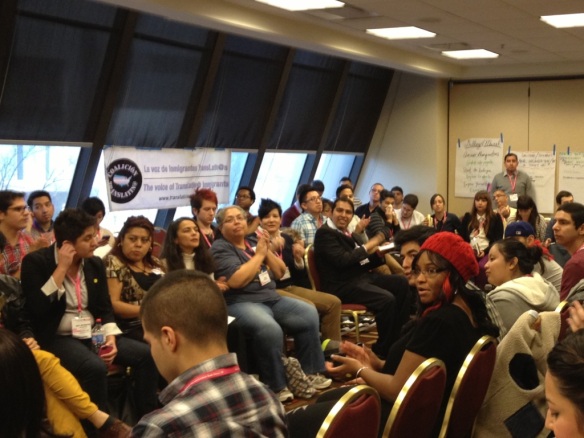By David Castillo, New Media Manager, NCLR
The 2013 Creating Change conference concluded a few days ago and the attendees are back in their communities, hopefully spreading the word about what transpired over the four-day confab.
This was my first time at the conference, and I couldn’t be happier to have represented the National Council of La Raza (NCLR). There were many great moments, but I was most struck by the enthusiastic embrace of immigration reform. If attendees didn’t receive the message that immigration reform is an LGBT issue as well , then they just weren’t listening. From the first-ever Latino Institute to the myriad sessions to the Saturday plenary, the subject of immigration reform was a hot topic that had everyone buzzing.
At the Latino Institute in particular, which is where my Creating Change experience started, I was especially surprised by just how many Hispanics were in attendance. In fact, there were more folks who participated than the organizers had expected! Seeing so many LGBT Latinos in one place was really a beautiful sight to behold.
“We were very pleased with the turnout of Hispanics who joined us for the first-ever Latino Institute,” said Latino GLBT History Project President, David Perez, the head organizer. “I think our presence at Creating Change was certainly felt, which enabled us to truly elevate the importance of Hispanic issues.”
The Latino Institute even made it on to CNN!
Immigration was one of the most popular topics at the institute. During the several break-out sessions on the issue, attendees had the chance to talk about what kinds of solutions our leaders should be considering as the country dives deeper into the debate.
Once the conference was in full swing, I didn’t need to look far to find folks rallying behind immigration reform. Indeed, the support has come from the highest levels in the LGBT community. I had the opportunity to chat with Rea Carey, Executive Director of the National Gay and Lesbian Task Force, about it. Carey was very enthusiastic and optimistic that this is the year for immigration reform. She also made it a point to tell us that the task force is solidly behind the fight. This was certainly proven at the Saturday plenary session, which featured the prize-winning undocumented journalist, Jose Antonio Vargas. He accepted an award for his leadership and also led a panel of undocumented activists. It was a spirited discussion, but what stood out the most was the fact that this conversation was being held in front of 3,000+ LGBT people. It occurred to me that Latinos truly have arrived. It was an inspiring moment and also was indicative of the collective power we have to cause change. You can watch the entire plenary below.
During the several sessions I attended, from those on school safety to marriage equality to how to do outreach to Hispanics, we were able to provide the Latino perspective for a community that has not always necessarily supported our causes. Going forward, I’m confident that our two communities will continue to work together toward the shared goal of creating change.








